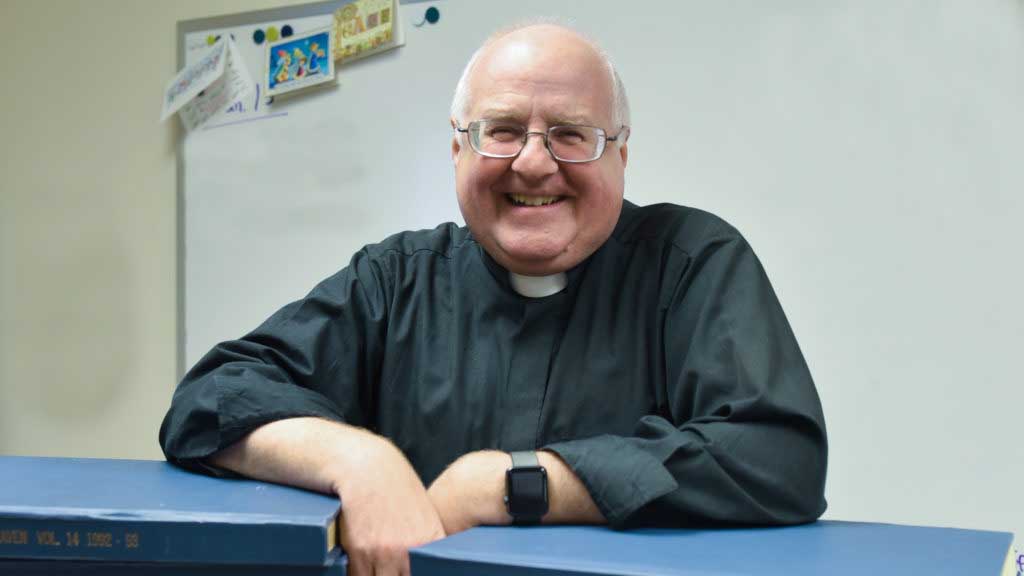
by Father Mark Goldasich
As of this writing, it’s 43 and 96. For those who are not baseball fans, these numbers represent the Kansas City Royals’ woeful 2023 statistics: a paltry 43 wins against a dismal 96 losses.
The only consolation is that in less than a month, this misery will be over.
Sadly, there’s no avoiding sorrows in life. Some are minor, like the Royals record this year or kids having to readjust to “school mode.” Other sorrows are much more devastating, such as the death of a loved one, the loss of a job, the onset of a serious illness or the failure of a marriage.
So, when serious sorrows strike, where do we turn for help? An obvious answer is to find someone who has been there and can empathize with our situation. The fact that he or she has come through the sorrow can give us both hope and guidance.
Did you know this month of September is dedicated to Our Lady of Sorrows? It’s an opportunity to reflect upon the seven sorrows or swords that pierced the heart of Mary:
• the prophecy of Simeon (Lk 2: 34-35)
• the flight into Egypt (Mt 2: 13-15)
• the loss of the Child Jesus in the Temple of Jerusalem (Lk 2: 41-51)
• Mary meets Jesus as he carries his cross to Calvary (Lk 23: 26-31)
• Mary stands near the cross of Jesus (Jn 19: 25-27)
• Mary receives the body of Jesus as he’s taken down from the cross (Jn 19: 38)
• Mary helps place the body of Jesus in the tomb (Jn 19: 39-42)
In addition to these sorrows, we also remember that Mary was a pregnant, unmarried teen, a widow and the mother of a convicted criminal. In short, we have a powerful intercessor and comforter in the Blessed Mother as we face the inevitable sorrows of our lives.
Pope Francis frequently reminds us of the need for “accompaniment.” Having someone, especially God or the Virgin Mary, walk with us as we navigate the layers of sorrow can be a transformative experience, as this story illustrates:
Rabbi Moshe traveled to a strange land, taking along his donkey, a rooster and a lamp. Since he was a Jew, he was refused hospitality in the village, so he decided to sleep in the woods.
He lit his lamp to study the holy books before going to bed, but a fierce wind came up, knocking over the lamp and breaking it. The rabbi merely said, “All that God does, he does well.” During the night, some wild animals came along and drove away the rooster, and thieves stole the donkey. When the rabbi woke up and saw the loss, he still proclaimed, “All that God does, he does well.”
The rabbi then went to the village where he was shunned, only to learn that enemy soldiers had invaded it during the night and killed all the inhabitants. These soldiers had passed through the same part of the woods where he was asleep. Had his lamp not been broken, he would have been discovered. Had not his rooster been chased, it would have crowed, giving him away. Had not the donkey been stolen, it would have brayed. So, once more, Rabbi Moshe declared, “All that God does, he does well.” (Story adapted from Brian Cavanaugh’s “The Sower’s Seeds.”)
During this month, bring your sorrows to the Blessed Mother. Because she understands so well, we can pray confidently:
“Holy Mary, may we follow your example and stand by all your children who need comfort and love. Mother of God, stand by us in our trials and care for us in our many needs. Amen!” (Prayer from the Miraculous Medal Association)


